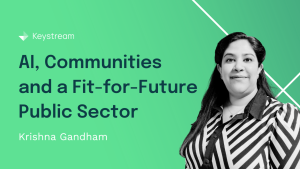02.07.2024
The Fundamentals for Successful Change
In this election week, politics aside, we have a real opportunity to reflect on what matters to us as individuals as we decide if and for whom we place our votes. What matters to us as citizens as we go to the polling stations? Will you vote for yourself or on behalf of others? Would the vote be different between those two options?
Our personal experiences shape our choices. I have experienced first-hand the care and welfare system through my dad’s latter years, my two children are in the local state primary school, I (partly) own a home, and I have a job. These are just a few reference points that influence my own choices. I also care deeply about reducing societal inequalities, I am anxious about the future of our planet, and I believe everyone should have the opportunity to live the lives they choose to live.
To fundamentally rethink the purpose and practice of public services and to execute on the reimagined future that so many are currently writing about, it’s easy to feel that the changing political landscape is going to drive the change. Maybe in the longer term, but in the short term, we can’t afford to wait, and in many places, amazing change is already happening to improve lives and outcomes. If we could all just take that one positive action to create real change, imagine what the future could be like!
Change is not easy; in many cases, it is a tapestry of interwoven threads that, when brought together expertly, create something of beauty, but can end up unfinished or not as initially intended (like my own attempts at knitting!).
Where change makes a tangible positive difference, it is often due to several conditions being in place for that change to thrive. It’s often the fundamentals that get glossed over as we seek out the new shiny toy. With so much to do, how can we find the time to get the fundamentals right? In reality, why do we not create the time for what will keep us on track for a sustainable future?
I’d like to give a perspective on these fundamentals. They apply to any change – in a team or across a system, as a program or as part of continuous improvement.
So, if you’re currently immersed in change, if it’s not quite delivering what you had envisaged at the start, or if you’re about to embark on something that has deep importance to your future, ask yourself the following questions. I’d love to hear what resonates with you:
- Clarity of a Shared Vision: How co-created is your vision? Can everyone articulate what the vision means for them?
- Specific and Meaningful Goals: How have you captured what good would look and feel like? Who benefits from successfully achieving those goals?
- Strong Delivery Mechanisms: Is the governance balanced between grip and empowerment? Are the right people involved to make change happen?
- A Robust Starting Position: What is the story of why change is needed? How confident is the team in deeply understanding where you are now?
- Holistic Experience Design: Have you consciously designed for experiences and not just processes? How involved are users in shaping the future?
- A Proactive Learning Culture: Is time set aside for learning and research? How do you draw inspiration from both usual and unusual places?
- The Ability to Make It Happen: Is the investment (time and money) sufficient to match your ambition? Do you have the right skills and tools to deliver?
- Evidence of Real Impact: Have you planned for demonstrating tangible change? How well defined are both the financial and qualitative benefits?

